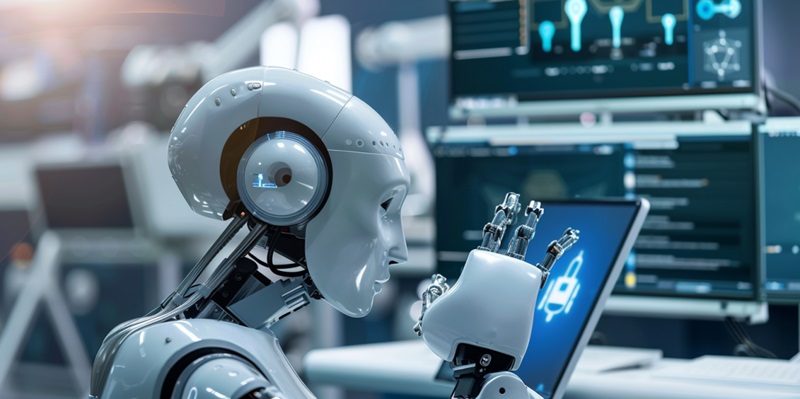As the tech industry accelerates toward 2024, the insurgence of Generative AI (GenAI) heralds a new era of transformation in IT operations (ITOps). The blend of cutting-edge AI tools is not just redefining existing processes but also presenting organizations with both opportunities for growth and new challenges. Understanding and preparing for these changes are crucial for businesses to optimize performance, maintain competitive advantage, and navigate the intricate ethical landscape that will accompany the rise of GenAI. This article delves into the multifaceted impact of GenAI, focusing on enhancing productivity, transforming IT architecture, the importance of talent retention, and ethical considerations, to provide a roadmap for successfully integrating these advancements into the ITOps of 2024.
Supercharged Productivity with Generative AI
The advent of tools like ChatGPT and GitHub Copilot is propelling software development into a new dimension of efficiency. Generative AI brings both promise and peril; while it accelerates code generation and implementation, it simultaneously raises the potential for a surge in complexities and incidents within digital ecosystems. To counterbalance this, investment in AIOps solutions emerges as a strategic imperative. Such tools can deftly handle the increased diversity of alerts, ensuring rapid incident resolution and robust infrastructure management.
Fostering high productivity levels in the face of GenAI’s introduction demands a pragmatic approach to minimize the potential pitfalls. Rather than succumb to the deluge of alerts potentially caused by GenAI-driven development, AI-infused systems can filter out superfluous noise, enabling teams to maintain focus on enhancing and innovating within their digital landscapes. This proactive stance ensures that the surging productivity brought about by GenAI translates into genuine progress rather than overwhelming digital operations teams.
Transforming IT Architecture and Processes
With 2024 on the horizon, the reach of GenAI is set to extend its tentacles beyond mere content creation into the realm of IT architecture and process reengineering. We anticipate a pivot toward automated prompt engineering that could amplify the capabilities of AI far more dramatically than we see today. Such advances may be accompanied by strategic partnerships and acquisitions by large IaaS and SaaS providers, simplifying the incorporation of LLM technologies for organizations.
This transformation will rewrite the playbook for IT architecture design and its operational processes. As GenAI becomes more interwoven with the fabric of IT operations, we expect companies to lean heavily on these tools for developing forward-thinking solutions and upending the status quo. This won’t merely enhance existing workflows but is likely to spearhead entirely new paradigms in how IT services are conceptualized, executed, and delivered in the coming years.
Talent Retention in the Age of AI
In the AI-infused landscape of 2024, organizations will recognize that human talent operates at the heart of technological innovation. Faced with the formidable capabilities of GenAI, companies will prioritize creating environments conducive to retaining top talent. Despite the surge in automation, the synthesis of AI and human proficiency will define the backbone of effective and progressive ITOps teams.
Strategically minimizing monotonous tasks and providing teams with opportunities to engage in creative work will aid in retaining critical talent. As AI takes over the repetitive aspects of IT jobs, individuals will redirect their focus toward strategic thinking and innovation. This collaboration between human intellect and AI is set to drive the industry forward, with top-tier professionals working alongside sophisticated tools to spearhead breakthroughs in IT solutions.
Ethical Considerations Amidst AI Integration
The integration of GenAI into business operations is not without its ethical and regulatory implications. As AI becomes more pervasive, organizations must be visionary in preempting and addressing the potential fallout of their AI-driven initiatives. This calls for executives and boards to be diligent in constructing safeguards around product ethics, compliance, and social accountability.
Establishing an ethical framework for deploying GenAI is essential. By doing so, companies will instill confidence and uphold a commitment to responsible innovation among their customers and stakeholders. Ensuring that products and processes align with a robust ethical code is not just good corporate citizenship but a business imperative that supports sustainable growth and public trust.

